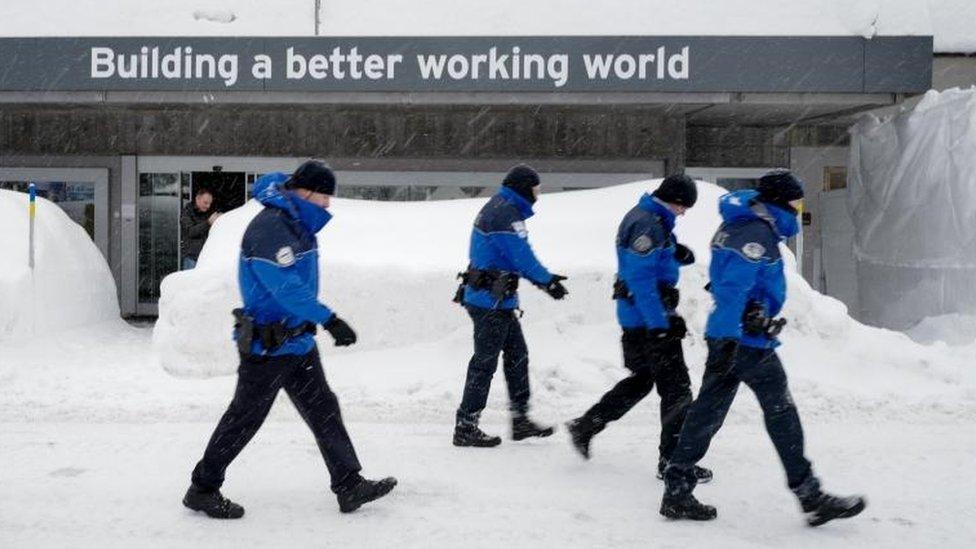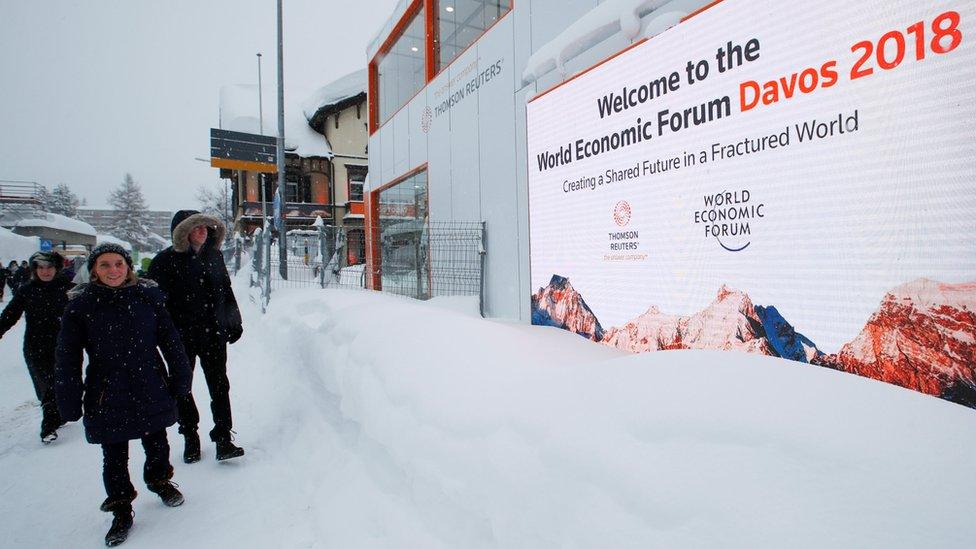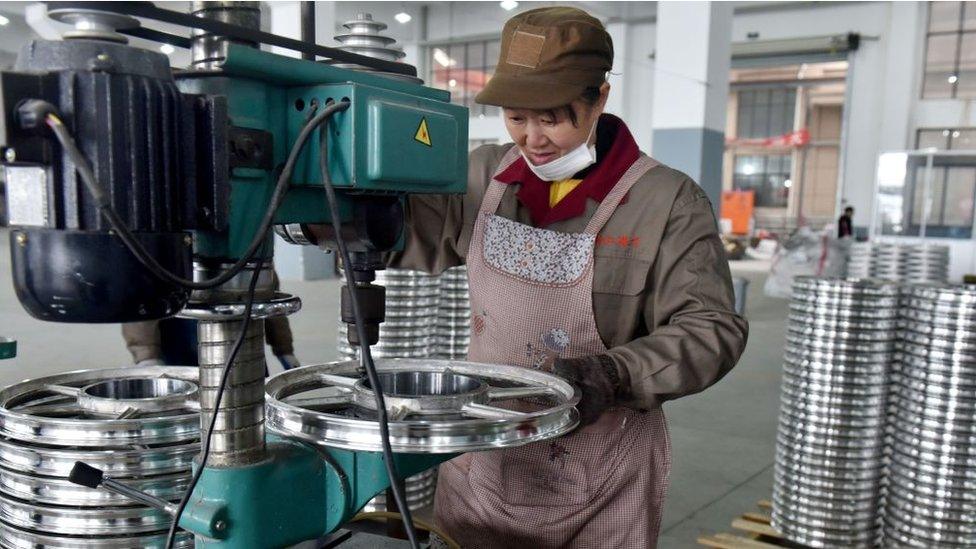Davos 2018: The big worry under the mounds of snow
- Published
- comments

Economic growth may be picking up, but is it the right kind of growth?
Finally, some good news.
After years of downgrades, yesterday the International Monetary Fund (IMF) struck an upbeat note on the global economy.
America, China and the European continent are all enjoying better figures.
The IMF said that all the advanced economies should see higher growth than expected by 2019.
Well, all the advanced economies bar one.
The IMF downgraded the UK as it still sees Brexit risks weighing on prospects.
'Synchronised' growth
I have been coming to Davos for nearly 10 years and this is certainly the most optimistic mood I have experienced.
The PwC survey of global chief executives - also released on Monday - suggested that 57% believe that economies will be stronger next year.
The "synchronisation" of growth is the reason.
In previous years good news from America, for example, was tempered by problems in the eurozone.
Or optimistic figures from India would be contrasted with fears over hyper-high Chinese debt levels.
This time, the better news links all the main drivers of global growth.
And, ultimately, growth means more wealth being created and more people being taken out of absolute poverty.
Which is to be welcomed.
But... and it is a big one.
There is growth, yes, but is it the right kind of growth?
The IMF report reveals that one-fifth of emerging market economies saw per capita incomes fall last year.
There are also major worries about inequality between countries and between generations within countries.
The fact that just 21% of delegates here are women - actually the highest percentage on record - also tells its own story.
Add to that fears over the frothy nature of markets and the threat of an increasing number of trade disputes.
So, all is not rosy.
Turning off the taps
Underlying all those issues is another "synchronisation" that may have less benign effects than the better growth figures.
It is the big worry talked about in the private meetings and dinners that continue here when the cameras are off and the main conference centre is closed.
Central banks around the world are starting to withdraw some of the monetary stimulus that has been pumped into the global economy since the 2008 crash.
The great expansionary experiment - priced in the hundreds of billions of pounds and never tried before - is coming to an end.
It is the first time since that initial, joined up, response by central banks to the credit crunch that such a monetary synchronisation has become evident.

The IMF said one-fifth of emerging market economies saw per capita incomes fall last year
In 2014, when the Federal Reserve signalled the gentle withdrawal of monetary stimulus, the Bank of Japan was in heavy expansionary mode, supporting Prime Minister Shinzo Abe's efforts to kick start economic growth.
At the end of 2015, when the Federal Reserve announced the first interest rate rise since 2006, the European Central Bank (ECB) cut theirs further into negative territory and extended Mario Draghi's "big bazooka" - the buying of billions of euros worth of financial assets to support governments and businesses.
Now, the Federal Reserve, the ECB and the Bank of Japan have all signalled a change of tone.
Talk is of tapering monetary stimulus and raising interest rates.
The Bank of England's next move on interest rates is expected to be up.
Avalanche of money
Now, no one is suggesting that the era of easy monetary policy is over.
Central banks still bought $1.5 trillion (£1.07tn) of bonds in 2017, above the 2011-2016 average of $1.25tn.
But they are all signalling that the high water mark has been reached.
And, as the stimulus is slowly reduced, what will be revealed about the real structural problems developed economies in particular face?
The lack of business investment which has left us with low productivity.
The lack of wage growth which has left many millions of people facing falling real incomes.
An avalanche of central bank money has kept the global economy on its feet since the financial crisis.
And has given politicians an excuse to "look the other way" when it comes to the really tough issues economies face.
As that drug is removed, it will be time for governments to start focusing on what actually matters.
And tackling the "fractures" that are all too evident to the thousands of delegates here at the World Economic Forum.
- Published22 January 2018
- Published22 January 2018

- Published22 January 2018

- Published22 January 2018
